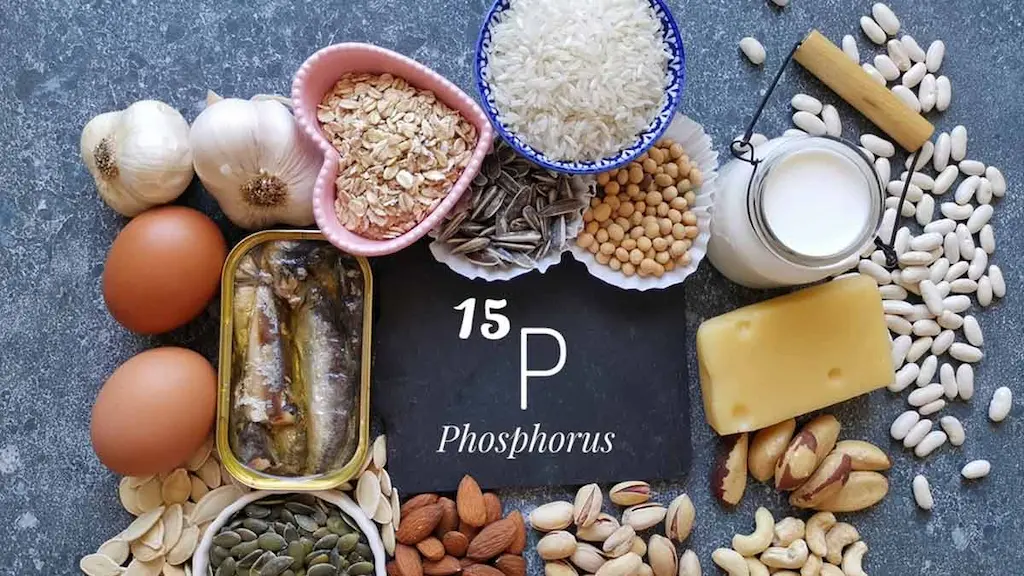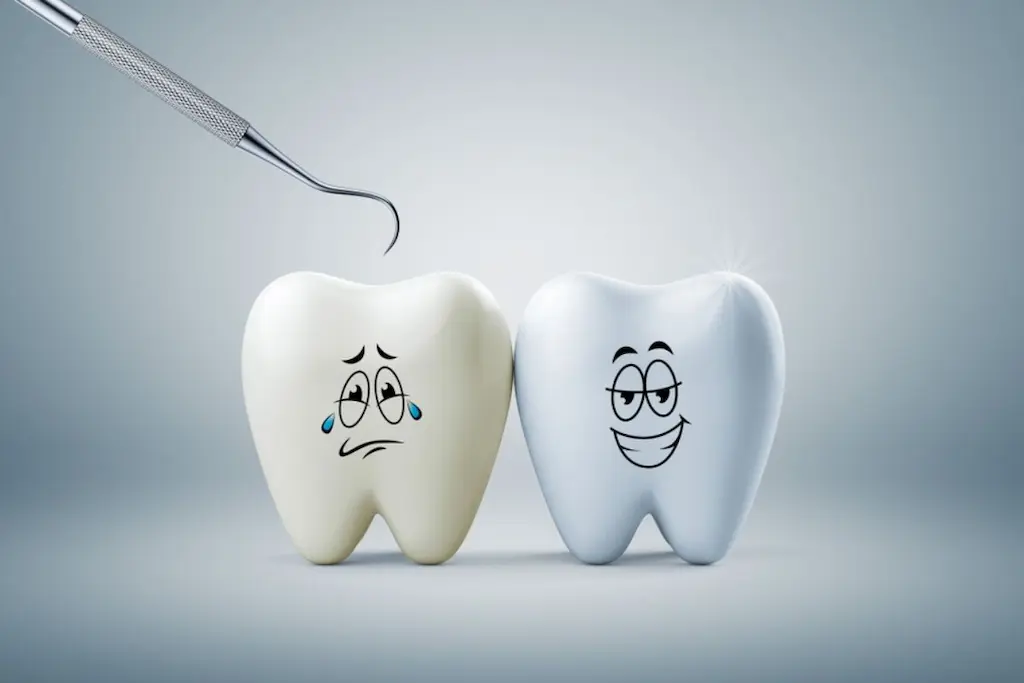Submit Request ...
-
Forums
How To Strengthen Tooth Enamel

It’s no stretch to say that your teeth’s enamel is super important. In fact, without enamel, your teeth would grind away or break down far too quickly.
Enamel is a tough shell that forms the outside of your teeth, covering the crown. It’s the visible part of your teeth and is, even compared to bone, the toughest tissue in the human body.
Yet even though enamel is pretty tough, it's not invincible. Over time, enamel can wear down or degrade through cavities and other dental issues. If your teeth's enamel wears down, your teeth themselves become much more vulnerable.
So the big question is this – is it possible to strengthen tooth enamel? Absolutely. It’s also possible to practice great dental hygiene strategies and maximize your teeth’s overall health.
Let’s take a deep dive into enamel-strengthening tactics and see where you can improve your teeth’s enamel starting today.
What Can I Do to Strengthen Tooth Enamel?
Turns out, there are lots of ways to strengthen teeth enamel, and you don’t even have to give up tasty foods or coffee.
Brush Your Teeth
Naturally, brushing your teeth is a great place to start. When you brush your teeth, you remove bacteria and lower the likelihood of cavities, which can crop up when Streptococcus mutans bacteria builds up in your mouth.
There’s no way to stop bacteria from reaching your teeth, unfortunately, as they typically piggyback on your food and drinks. So you’ll need to brush your teeth regularly to prevent that bacteria from breaking down tooth enamel over time.
Use Fluoride Toothpaste
Speaking of brushing your teeth, be sure to use fluoride toothpaste with each brushing session. Fluoride toothpaste can help prevent tooth decay and strengthen your teeth when fluoride ions bind with compounds in your teeth, filling in microscopic gaps.

Cut Down on Sugar
Even though fluoride toothpaste and regular brushing can prevent enamel decay, you should also cut down on sugar wherever possible. Soda, candy, and even sugary coffee should all be limited.
Not only will this be better for your overall bodily health, but it’ll also make it harder for bacteria to break down enamel. That’s because sugar, a highly acidic compound, is a perfect food for bacteria that sits on the surface of your teeth. Less sugar means less bacterial reproduction and less acid wearing down enamel over time.
Chew Sugarless Gum
Want something to occupy your mouth aside from snacks? Try sugarless gum, which can strengthen your jaw muscles and give you something to chew without adding more sugar to your diet.
Even better, some sugar-free gums can remove sugar and plaque from your teeth, boosting tooth hygiene at the same time.
Moderate Your Fruit Intake
Lots of well-meaning folks cut down on sugary snacks and sweets, but they might still wear down their enamel over time if they eat too much fruit.
Most popular fruits, like berries and citrus fruits in particular, are highly acidic. In a nutshell, fruit acid can easily bind to the calcium in your teeth and strip it away over time, making your enamel more vulnerable to decay.
To prevent this, don’t eat too much fruit or drink too much fruit juice.
Take a Multivitamin
As mentioned, calcium is a very important vitamin for your teeth’s overall health. Your body makes enough calcium in most cases, but you can replace any calcium stripped away by acid and bacteria by taking a multivitamin.
Multivitamins typically include calcium and other vitamins and minerals, such as vitamin C, zinc, and more. Even better, a multivitamin can easily be added to your daily routine – just take it with breakfast and maximize your wellness across the board.

Drink More Water
Drinking water can be surprisingly effective at helping to strengthen tooth enamel since it sweeps away plaque and bacteria before they have the chance to solidify on the surface of your teeth. Plus, drinking more water will ensure you stay hydrated, which is great for overall bodily health.
Reduce Starchy Foods
Last but not least, try to eat fewer starchy foods, like rice, potatoes, and bread. Starchy foods have tons of simple carbohydrates, which can massively increase how much fermentable sugar sits on your teeth. Given time, that fermentable sugar can erode your teeth’s enamel and increase the likelihood of cavities.
It’s not just dessert foods that can lead to cavity formation!
What Foods Can I Eat to Strengthen Tooth Enamel?
Just like there are foods you should avoid to prevent enamel decay, you can also prioritize different foods to strengthen your teeth’s enamel. These include:
✓ Any fiber-rich fruits and vegetables (within reason – remember, don’t eat too much fruit!). Foods with a lot of fiber can keep your gums and teeth clean, plus cause your salivary glands to produce more saliva. Your saliva naturally contains a little bit of phosphate and calcium, restoring certain minerals to your teeth and sweeping away bacteria.
✓ Dairy products like cheese, plain yogurt, and milk. Just avoid dairy products with lots of excess sugar. The calcium in cheese and other products can strengthen your teeth’s enamel.

✓ Green and black tea, both of which have polyphenols. Polyphenols can interact with plaque bacteria, either removing it or preventing it from spreading.
✓ Any other fluoride-infused foods or beverages. Chances are tap water in your area already has fluoride, so your drinking water can boost tooth enamel in this way.
Other foods, such as certain cereals or poultry products, may also include fluoride.
Which Vitamins Help My Teeth?
Alongside certain foods, you should try to prioritize taking certain vitamins if you want to boost tooth enamel as much as possible.
Calcium
Calcium is one of the most important vitamins to help your teeth. It’s necessary for enamel to form in the first place, but it’s also important for the structural integrity of your teeth overall.
Vitamin D
Vitamin D is also important, as it can boost mineral density and help to carry and deposit the calcium mentioned above, bringing it exactly where it needs to go for maximum efficacy.
Potassium
Potassium is a helpful vitamin for your teeth since it can reduce sensitivity and, when concentrated in the enamel, can boost your teeth’s overall durability.

Phosphorous
Phosphorus is key since it can protect tooth enamel, plus help to “rebuild” it to some extent (more on tooth enamel reconstruction below).
Vitamin K
As an effective calcium-binding vitamin, vitamin K is important for overall tooth health. It can even help improve tooth density and growth – a key aspect when protecting the enamel of children.
Vitamin C
Vitamin C is often prioritized for its effect on the immune system, but it also helps your body to produce collagen: a vital compound in tooth dentin. Your body also needs vitamin C to repair and maintain its teeth.
Vitamin A
If you want to maximize tooth and gum health, you’ll want to prioritize vitamin A. Your body can use vitamin A to create keratin, which is an important protein in your teeth’s enamel.
Can You Restore Tooth Enamel?
Yes and no.
Enamel is best thought of as a layer of protective material over your teeth’s dentin. Once the layer of enamel is fully worn down, it can never come back or be replaced. That’s why it’s important to take care of your teeth’s enamel as aggressively as possible.
However, weakened spots in the enamel layer can be restored to some extent. This process is called re-mineralization, and it involves introducing calcium and other minerals to your teeth. The minerals can bind to the enamel and fill in the weak spots, effectively rebuilding the protective barrier.
Bottom line: tooth enamel can’t really be replaced, but it can be repaired if you practice good dental hygiene strategies fast enough after noticing the signs of enamel decay.

What Are the Symptoms of Tooth Enamel Decay?
Just what are those signs? Chances are you’ll notice when your enamel is wearing pretty shortly after it begins. Common symptoms include:
✓ Cracked or chipped places in your teeth
✓ Higher sensitivity to tastes, temperatures, and textures
✓ Tooth discoloration
✓ Indentations called “cups” on your teeth
Of course, typical signs of cavities, such as discoloration and toothaches, are also signs of enamel decay. If your teeth’s appearance starts to change or your teeth become suddenly sensitive, you should visit a dentist so they can tell if your enamel needs work.
Takeaway
Overall, it’s important to take care of your teeth’s enamel since it can’t fully be replaced once it’s gone. Fortunately, there are lots of ways you can strengthen the enamel of your teeth while there’s still time:
Start with a fluoride toothpaste. Not only does this paste include plenty of fluoride to rebuild your teeth’s enamel, but it’ll also help to take care of tooth discoloration and whiten your smile.
Use an electric toothbrush to maximize brush effectiveness and to make sure you scrape away as much plaque as possible.
Be sure to floss in between your teeth to protect the enamel there.
Practice that routine – and keep the other enamel building tips in mind – and your teeth will be well protected against tooth discoloration, enamel decay, and cavities.
Articles are reviewed by Dr. Moein Taghvi. This information is for educational purposes only. This content is not intended to be a substitute for professional medical advice, diagnosis or treatment. Always seek the advice of your dentist, physician or other qualified healthcare provider.
Please let us know what you think!